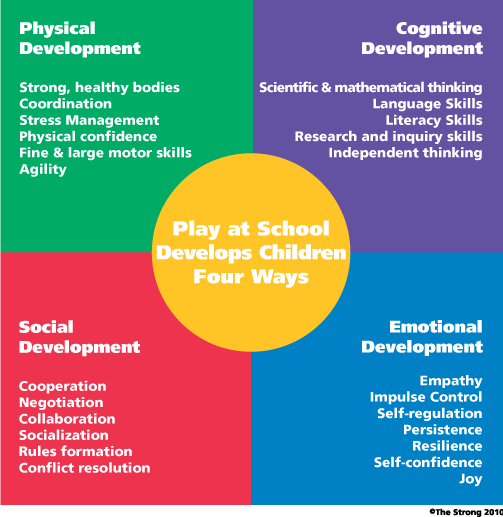Educational Philosophy
Play at The Strong
All educational experiences provided by the museum use the power of play to enhance learning. Museum experiences are designed with the following principles in mind:
- Learners develop concepts and skills through meaningful play.
- Play supports physical, emotional, cognitive, and social development.
- Learners should be active participants in guiding their own learning.
- Each learner is unique and has individual learning preferences and styles.
- Learning is easier when learners make connections between their experience and new information.
- Teachers aid learning when they support inquiry.
- Learning happens best in a stimulating, inviting, and nurturing environment.
Play at School
Play at school is more than recess. It can be any activity, inside the classroom or out, that fascinates the brain. When teachers use play in the curriculum and let children follow their own interests, learning happens. And when learning is self-initiated and self-directed, it goes deeper and lasts longer.
In The Importance of Play in Promoting Healthy Child Development and Maintaining Strong Parent-Child Bonds (2007), the American Academy of Pediatrics says:
“Play is integral to the academic environment. It ensures that the school setting attends to the social and emotional development of children as well as their cognitive development. It has been shown to help children adjust to the school setting and even to enhance children’s learning readiness, learning behaviors, and problem-solving skills. Social-emotional learning is best integrated with academic learning; it is concerning if some of the forces that enhance children’s ability to learn are elevated at the expense of others. Play and unscheduled time that allow for peer interactions are important components of social-emotional learning.”
Play at school develops children in four ways.


